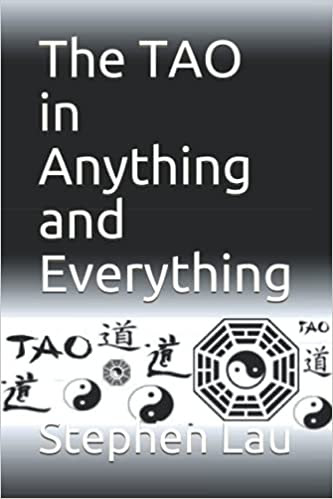All About . . . .
Myasthenia gravis is one of the many autoimmune diseases, which, according to contemporary Western medicine, offer no known cure, except controlling or suppressing their many disease symptoms.
This book is based on the author's own experience of battling against his myasthenia gravis: how he stopped all his medications through a holistic approach to controlling and managing the disease. This book provides insight and well-researched information that he would like to share with those who are afflicted with myasthenia gravis or any other autoimmune disease.
Albert Einstein once said: "There are two ways to live: you can live as if nothing is a miracle; you can live as if everything is a miracle." Believe in the miracle of self-healing. Healing comes only from within, and not from any external source. Every individual should avail every opportunity to initiate the self-healing process, which is innate in the human body. Just believing in the miracle of self-cure, however, is not enough; you must also empower yourself with knowledge and information to overcome myasthenia gravis through a holistic approach to the wellness of the body, the mind, and the spirit.
This book covers every aspect of holistic health to cope with autoimmunity: body detox, diet, lifestyle changes, exercises for muscle weakness, and mental relaxation techniques for vision problems associated with myasthenia gravis. "The human body experiences a powerful gravitational pull in the direction of hope. That is why the patient's hopes are the physician's secret weapon. They are the hidden ingredients in any prescription." (Norman Cousins) Find your own ingredients in your prescription for a cure of your myasthenia gravis.
The above is what this book is all about. Click here to get your copy from AMAZON.
The Outline of the Book . . . .
CHAPTER ONE: AUTOIMMUNITY
AUTOIMMUNITY
Autoimmune Diseases
What are the potential causes?
Who are more at risk?
THE IMMUNE SYSTEM
The Cellular Health
How Body Cells May Become Damaged
The Damages by Free Radicals
Boosting Immunity
Protecting the Immune System
CHAPTER TWO: MY STORY
MYASTHENIA GRAVIS
MY STORY
My Conditions
My Treatment
My Rude Awakening
The Road to Self-Healing
CHAPTER THREE: UNDERSTANDING SELF-HEALING
THE MIRACLE OF SELF-HEALING
THE ESSENTIALS OF SELF-HEALING
The Power of the Mind
Changing the Subconscious Mind to Heal
Optimizing Subliminal Messages
CHAPTER FOUR: STEP 1 - STOP ALL DANGEROUS DRUGS
NO CURE FOR AUTOIMMUNE DISEASES
Steroid Therapy
The Dangers of Drugs
Take control of your health and escape the sickness industry
CHAPTER FIVE: STEP 2 - INTERNAL CLEANSING
A TOXIC BODY
Sources of Toxins
Common Symptoms of a Toxic Body
INTERNAL CLEANSING
Different Ways of Detoxification
Fasting to detoxify
Skin brushing to detoxify
Foot patches to detoxify
Hydrotherapy to detoxify
Exercise to detoxify
Foods to detoxify
Herbs to detoxify
CHAPTER SIX: STEP 3 - FOODS AS MEDICINE
USE FOODS TO BALANCE ACID-ALKALINE LEVELS TO HEAL THE IMMUNE SYSTEM
Acidification
Sources of acidification
Diseases caused by acidification
Symptoms of excess acidification
Measuring acid-alkaline levels
Foods to balance acid-alkaline levels
FOLLOW THE BASICS OF EATING FOR A HEALTHY IMMUNE SYSTEM
Eating to Live, Not Living to Eat
Eating Less, Not More
Eating Frequently, Not Three Time a Day
Eating Living Foods, Not Dead Foods
Eating Sea Salt, Not Table Salt
Eating No Refined Sugar
Eating Raw Occasionally
Chewing Thoroughly
Smart Cooking
FOODS FOR THE IMMUNE SYSTEM
Chlorella
Wheat Grass
FOODS TO BOOST THE IMMUNE SYSTEM
Apples
Brown Rice
Garlic
Sea Vegetables
Sweet Potatoes and Yams
DRINK TO HEAL THE IMMUNE SYSTEM
Burdock and Daikon Drink
Four Greens Drink
Pine Needles Drink
FOODS FOR BALANCE AND HARMONY
The Yin and Yang Diet
The Five Elements
FOODS TO AVOID FOR PROTECTION OF THE IMMUNE SYSTEM
Sugar
Suggested sugar replacements for healthy eating for a healthy immune system
Dairy Products
Soy
CHAPTER SEVEN: STEP 4 - LIFESTYLE CHANGES TO HEAL
CIGARETTE SMOKING
The Health Hazards
Secondhand smoke
Quitting the Habit
ALCOHOL DRINKING
Beer Drinking
STRESS
Understanding the Causes of Stress in Your Life
Ways to Handle Stress
Stress Management
Perceptions of stress
Long-term measures to manage stress
Manage stress the Chinese way
Dealing with Life’s Problems
CHAPTER EIGHT: STEP 5 - RELAXATION TO BOOST IMMUNITY
STRESS
Signs and Symptoms of Stress
SLEEP
OTHER RELAXATION TECHNIQUES
Deep Relaxation
Meditation
How to meditate
How to breathe right to meditate and to relax
Mind Aerobics
Color Therapy
Mental Attention
Intense presence of the mind
Mind training to focus on the present moment
CHAPTER NINE: STEP 6 - OVERCOME MUSCLE WEAKNESS
MUSCLE WEAKNESS
Yoga
Qi Gong
YOGA ROUTINE FOR MUSCLE STRENGTH
CHAPTER TEN: STEP 7 - OVERCOME VISION PROBLEMS
WEAK EYE MUSCLES
DOUBLE VISION
EYE RELAXATION
Relax the Body to Relax the Eye
Self-Massage to Relax the Eye
Facial and eye massage
Rub the eye
Acupressure for eye massage and eye relaxation
Eye Exercises to Relax the Eye
Regular eye relaxation
Palming to relax the eye
The "8" eye exercise for relaxation and flexibility
The Taoist squeeze-and-open eye exercise for blood circulation to relax the eye
Learning how to blink
Yawning to cleanse and relax the eye
Stretching eye muscles for relaxation
Strengthening Vision
CHAPTER ELEVEN: FINAL WORDS OF WISDOM
BIBLIOGRAPHY
MY MYASTHENIA GRAVIS







